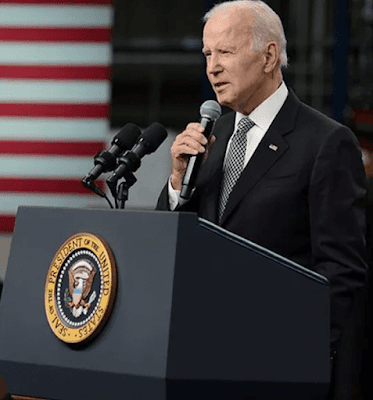On Friday, the US Department of Commerce imposed new restrictions on shipments to China that are particularly sensitive. Companies in the alliance who use American hardware and software must adhere to the regulations.
In the ongoing geopolitical war between the United States and China, the semiconductor sector has become the site of a new American onslaught. To "defend US national security and foreign policy objectives," the US Department of Commerce announced on Friday two new regulations that dramatically broaden the scope of the country's export control policy.
This news comes as Vice President Joe Biden tours the country with tech giants Intel, Micron, and IBM to advocate new regulations that will bring manufacturing of computer chips back to the United States. Joined together.
The ministry claims in a press release that the goal is to stop China from obtaining advanced chips, developing and maintaining supercomputers, or producing advanced semiconductors itself, all of which would be used to make weapons of mass destruction, improve military information, and monitor the Chinese population.
Companies wanting to sell high-tech chips in China will need to apply for such permission from the United States government in advance. In the event of an export to a plant owned by "entities in the People's Republic of China," a "presumption of refusal" would apply. If the owner is a worldwide corporation, each situation will be handled separately.
The United States has also added 31 businesses to its "gray list" of suspect but not necessarily prohibited businesses. From here, they have the option of being whitewashed or being added on the blacklist, along the lines of Huawei and Semiconductor Manufacturing International Corporation.
Foreign enterprises, especially those from Korea and Taiwan, who supply Beijing with cutting-edge components and equipment are also impacted by this regulatory tightening. The United States recently put pressure on the Netherlands to prevent the European semiconductor giant ASML from selling equipment to China.
Before this, exports of AI and big data processing chips were restricted by the Biden administration. Any foreign vendor whose chips are produced with the aid of US software, patents, or machinery is also subject to this ban.
These new rules are a major step forward since they apply to the whole semiconductor industry what Trump had previously only applied to specific businesses like Huawei.
However, some members of the conservative opposition still find it insufficient and would rather see an absolute export embargo implemented instead. Texas Republican and Foreign Affairs Committee member Michael McCaul called it "a step in the right direction," with the caveat that it not demonstrate "laxity."
He thinks it's too easy to get an export license. According to estimates by the "Wall Street Journal," only 0.5% of the 125 billion dollars in US exports to China in 2020 required a license, and of those 2,652 applications, 94% were granted.

